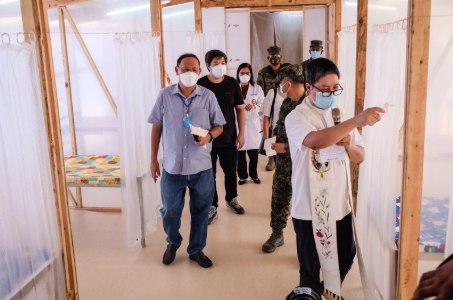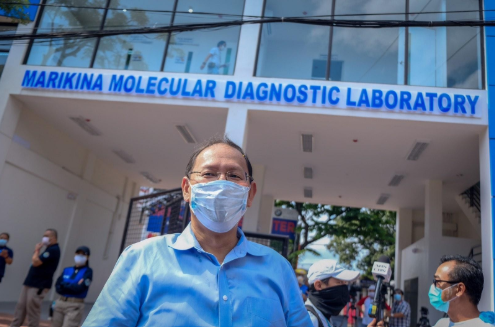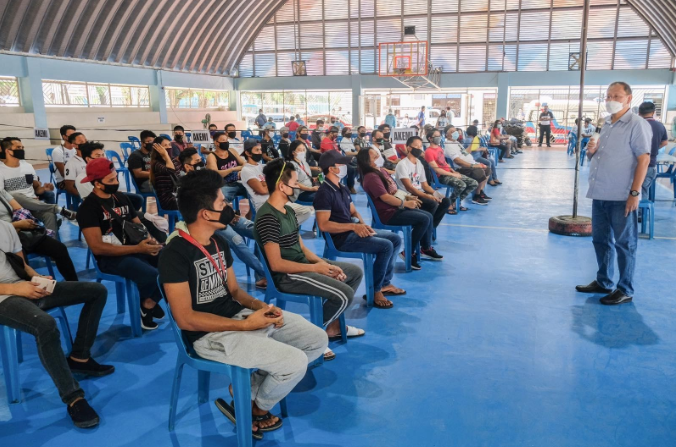Like a thief in the night, COVID-19 shocked Marikina City. Nobody saw it coming or prepared for it. It has been more than four months since the pandemic devastated our country, and it continues to wreak havoc on the economy, causing massive layoffs of workers and the closure of businesses as it remains to be a threat to human lives.
We in Marikina are no strangers to disasters. We have faced many typhoons and floods, but never have we encountered an unseen enemy like COVID. Like the challenges we have faced in the past, we will never let this pandemic win. We will triumph in this war with the resiliency and unity of our people.
In the first week of March, we recorded our first COVID-19 case with a patient who had traveled abroad. We conducted aggressive contact tracing and ordered disinfection in the patient’s community and the places he went to, such as schools, markets, parks. We also implemented a neighborhood community quarantine to isolate and contain the transmission of the disease but allowed activities to continue in the rest of the city.
I also immediately ordered the procurement of the locally-developed COVID-19 testing kits from Manila HealthTek Inc., which is accessible and cheaper than the imported testing kits.
“ In Marikina, our tests, whether rapid or PCR, are free. We test and treat our workers, we conduct mass testing in factories in the shoe industry, in public transport, etc. In short, testing has become part of our regular health service. ”
I had been watching the news, listening to what the health experts were saying as we first talked about putting up a testing laboratory. We conducted resource management, risk assessment, biosafety assessment, and strictly followed health protocols as a requirement in putting up the molecular laboratory.
Our testing system is an open system. It can use any type of testing kit regardless of brand, unlike in the testing centers accredited by the DOH, which can only use a particular brand. We should be able to democratize testing to provide access to those in the marginalized sector.
Most people have no access to testing because they cannot afford to go to a private hospital or afford the exorbitant price. In Marikina, our tests, whether rapid or PCR, are free. We test and treat our workers, we conduct mass testing in factories in the shoe industry, in public transport, etc. In short, testing has become part of our regular health service.
I wanted the facility to be operational as soon as possible because the country was already under a public health emergency, but days after our preparations, the DOH disapproved the testing facility we set up at the City Health Office building, telling us it should be located in the low-foot traffic area, in a stand-alone building so that cross-infection is minimized.
We suggested to the DOH to set up the laboratory at the DOH-run Amang Rodriguez Memorial Medical Center as an alternative testing facility, but the DOH team said it was not feasible.
In just a week, I found a new site for the laboratory — a two-story free-standing building located in a not-so-populated area but still accessible as it is along a main avenue.

In setting up the facility, the local government strictly followed the guidelines given by the DOH and the Research Institute for Tropical Medicine, yet we encountered another roadblock when the said agencies did not allow the new facility to operate. I was frustrated because I knew Marikina’s poor sector would suffer by being denied testing and supportive treatment should they be infected.
This is why and when I invoked the local autonomy of the city government under Section 16 of the Local Government Code, which states that every local government unit shall exercise the powers necessary in the promotion of the general welfare and health of its public.
Charges may be filed against me, but our prime concern was the safety and wellness of our people. This provided me the courage to pursue the establishment of our COVID-19 testing center.
I strongly believe that an offensive strategy is a key to winning this war, and this is what the WHO is prescribing — to conduct mass testing.

I did not lose heart, and after a month of waiting, the DOH finally gave us the green light to operate the Marikina Molecular Diagnostics Laboratory, which has been called a gold standard in testing. This is a good investment that’s available to our people. It is imperative, necessary, and essential to address the problems of COVID-19.
The real challenge to local governments is to have a resilient health delivery system, to balance health and safety concerns, and continue to run a viable local economy.
For our displaced workers, the city government helps them to find new jobs, and provide funding to loan facilities for small and medium enterprises.

We are strict with our social distancing measures, but we can’t simply remind people to do it. There should be a physical reconfiguration of the city’s offices, public areas. We are currently preparing for the coming school year by adapting a blended approach. We’re now buying gadgets and tablets for our students. We cannot afford for our students to lag behind in terms of knowledge acquisition and skills competencies.
Also, we are putting up Super Health Centers, which have larger facilities with a diagnostic pharmacy, consultation and dispensing of medicines.
The strong partnership of the community and local government is the key to Marikina’s resilience to overcome all challenges.
“ We’re now buying gadgets and tablets for our students. We cannot afford for our students to lag behind in terms of knowledge acquisition and skills competencies. ”
Laws and regulations should evolve with and adjust to people’s needs and wants. And this can only be done when you listen to people and hold genuine dialogues with them.
What is important at this point is that first, we should listen to our health experts, economic experts, and social scientists — they will provide us with a framework on how to proceed. But, more importantly, we should be practical about it and exercise common sense.
Marikina City is moving forward by adapting to the new normal.
Edited by Tanya T. Lara


